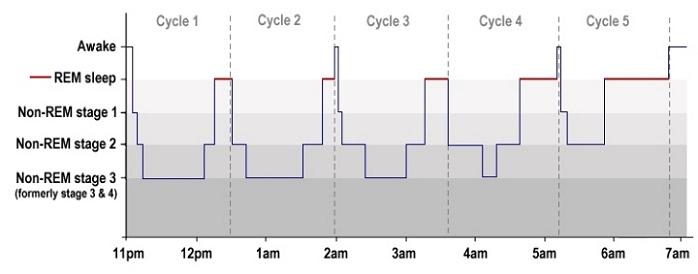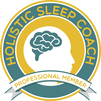|
Is your baby a light sleeper? Does she wake up every time you so much as walk past her door? Does she go from fast asleep to wide awake the second you put her into her cot? This is one of the most common discussions when I meet with parents in my Q&A sessions. They say that their babies are just so easy to wake, and when they do, they’re exceedingly difficult to get back to sleep. So first of all, let me dispel a little myth.
All babies are light sleepers, and all babies are heavy sleepers. So, for that matter, are all adults. We all go from light sleep stages called NREM 1 and 2 to deep sleep called NREM 3 and into active or dreaming sleep called REM which again is easy to be woken from with a brief arousal and back into NREM stages again we do this several times a night. Some babies spend more time in light sleep stages before slipping into deeper sleep, and some go from light sleep to deep sleep in almost no time at all, but everyone goes through these cycles every time they shut their eyes. The truly restorative sleep, the stuff that does us the most good, is the NREM3 or “deep” sleep within NREM. That’s why some people can get by on less sleep than others, because they get more NREM3 sleep than those of us who spend more time in light sleep stages NREM1 and NREM2. So when someone says that their baby is a light sleeper, what they probably mean is that their baby tends to spend more time in active dreaming sleep than deep sleep. Babies do anyway. 50% when born, then 40% moving to 30% as they get older at around 6 months - compared to an adult at 20-25%, or it simply may appears this way. Hear is why….compare adults 5 cycles to a babies 10-12 and the number of occasions they cycles into rem and light stages of NREM because that’s the easiest stage to wake up from. It’s when we dream and are more aware of our surroundings, so external noises tend to wake us up easier. Babies also have shorter cycles than adults, and therefore spend nearly twice as much time in light stages of sleep than grown ups. So if you’re finding that your baby is prone to waking up a lot, it’s partly a matter of inconvenient timing. So what can you do about it? How can you help a baby to spend more time in deep sleep? Well, you can’t really as this is a biological norm for them. But what you can do is help them to fall back to sleep when they wake up. There are a lot of elements to helping a baby sleep well, but one of the most important is the elimination of sleep props. By that, I mean anything that baby uses to help them fall asleep that they can’t provide on their own. Dummies, rocking motions, and feeding are all good examples of sleep props. If baby needs a car ride to fall asleep, then they’re going to need another car ride when they wake up again at the end of the next sleep cycle. If they get rocked to sleep, they learn to rely on that motion as part of the process, so once they wake up at night, they’re stuck that way until you come in and help them get back to sleep. This is often accompanied by a bunch of crying and fussing in order to get your attention, which wakes them up even further and requires more soothing to get them settled. However, the babies that people refer to as “good sleepers” have the same sleep cycles as the ones who wake up crying. They’ve just gotten the hang of falling asleep on their own, so they wake up, squirm around a little, maybe babble to themselves for a bit, then go happily back to sleep. So although you can’t stop your little one from waking up at night, you can absolutely help them to get back to sleep independently, and once you do, you and baby can both look forward to full nights of deep, rejuvenated, uninterrupted sleep. Comments are closed.
|
Categories
All
|
Site Links |
Copyright © - Nadia Edwards 2024, 3 Northbank Road, Cairneyhill, Dunfermline, Fife, KY128RN | Sitemap




